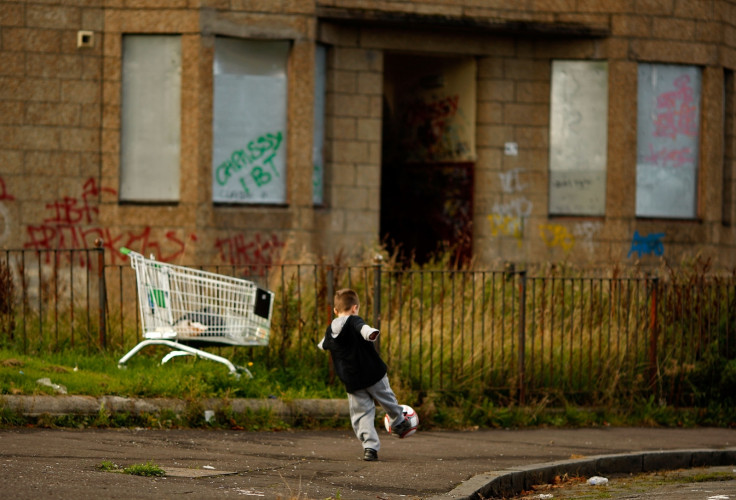Number of UK children living in poverty stands at 2.3million

The number of children classed as living in poverty currently stands at 2.3million – the lowest since the 1980s, according to the government.
Figures released by the Department for Work & Pensions show the percentage of children in relative low-income households has remained "flat" at 17% – slightly more than one in six.
There had been speculation the figures would show that the number of children living in poverty had actually risen for the first time in 10 years after the Institute for Fiscal Studies predicted an increase to 2.5million.
Currently, child poverty is defined as a child living in a household with an income of less than 60% of the national average of £26,500 per annum. Prime Minister David Cameron is said to have reopened discussions about changing how poverty is measured prior to the release of the annual figures.
The DWP said the average real-terms household income before housing costs (BHC) remained the same from 2012/13 at £453 a week and average housing costs also remained unchanged at £386.
Work & Pensions secretary Iain Duncan Smith said: "These statistics show that the proportion of individuals with low income is now at the lowest level since the mid-1980s.
"We know that work is the best route out of poverty, with children in work-less families around three times as likely to be in poverty as those in working families. That is why, as part of our long-term economic plan, our reforms to the welfare system are focused on making work pay, while our reforms to the tax system are allowing people to keep more of what they earn.
"Latest figures show UK employment has reached an all-time high, with employment up more than two million since 2010, and the number of households where no one works is the lowest since records began."
Despite the figures not being a bad as first feared, charities still believe the number of children in poverty topping two million should still be considered a "failure" by society.
Javed Khan, chief executive of children's charity Barnardo's, said: "Poverty is blighting the life chances of our children, making them more likely to fall sick, do less well at school and be unemployed in the future. Government plans to cut struggling families' incomes further by changing tax credits is deeply concerning.
"So that every child gets the chances in life every child deserves, this government must ensure that change to the benefits system makes work pay for those on low incomes, and doesn't force families further into poverty."
Matthew Reed, chief executive of the Children's Society, said: "It is a scandal that there are 200,000 more children who have been pushed deeper into poverty over the past year, as today's figures reveal.
"There has also been a steady rise over the past five years in the numbers of children living in in-work poverty, clearly showing that even those families with jobs are suffering because of government policies.
"Moving the goalposts by changing the definition of child poverty will do nothing to help the millions of children who are suffering in real poverty. The government needs to stop debating definitions and start doing more to help children."
© Copyright IBTimes 2024. All rights reserved.






